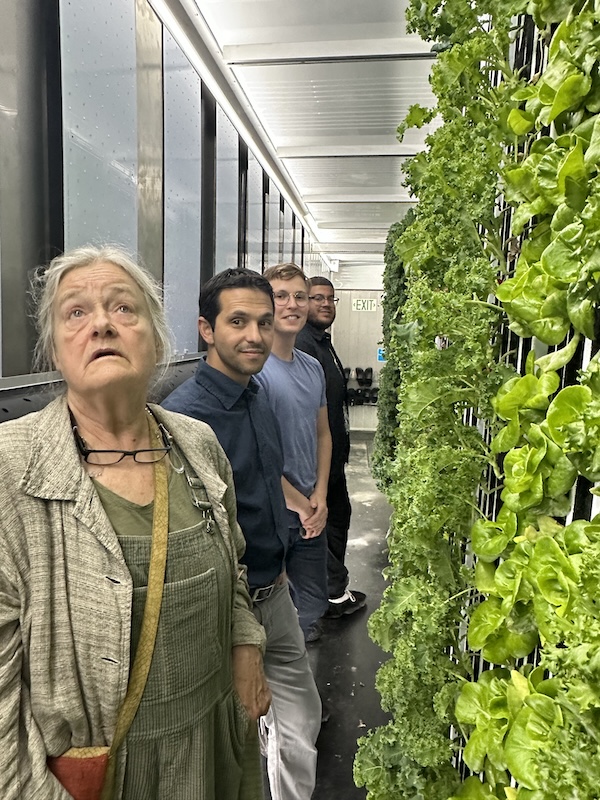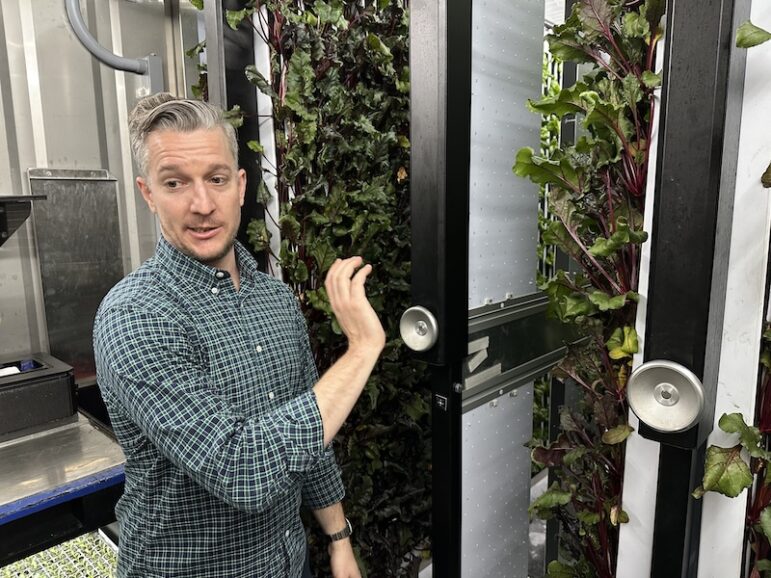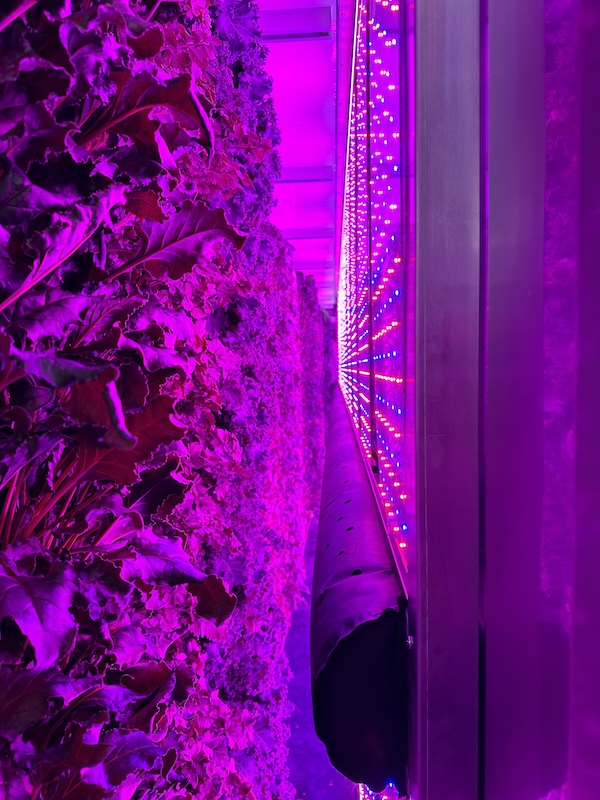
The following piece was provided by the Watertown Public Schools:
Watertown Public Schools is expanding its educational opportunities for students with the addition of a new Freight Farm, a converted shipping container outfitted to grow food year-round.
The 40-foot container allows for food and crops to be grown in a controlled, self-contained environment by utilizing vertical farming techniques and a closed-loop system. The Freight Farm will be used to expand course offerings at Watertown High School while also increasing food production for Watertown’s school cafeterias.
“After many years of planning, preparation, and securing funding, we are thrilled to welcome the arrival of our Freight Farm,” said Superintendent Dede Galdston. “Over the next several months, we’ll be working diligently to get it up and running in anticipation of our new High Tech Farming course at Watertown High School.”

The High Tech Farming course will be taught by Evan Nabel, a current Watertown High School teacher. In this course, students will learn about the environment, several important plant processes, the physics of light, energy consumption, and the chemistry necessary to grow crops effectively through managing two eight-week growing cycles in the freight farm. They will work in pairs to plan, initiate, and maintain a diverse selection of plants that they will harvest at the end of each cycle. Over the course of the semester, students will explore, in greater depth, concepts they have learned in both their biology and physics classes. Students will also learn important chemistry topics and how to apply their knowledge in a hands-on, practical setting.
The addition of the Freight Farm will increase Watertown’s standing as one of the Farm-to-School leaders in Massachusetts. The Massachusetts Farm-to-School program aims to increase local food purchasing by local schools in support of Massachusetts farmers and fishermen, while also expanding food and agricultural education.

Currently, the Watertown Public Schools Farm-to-School program provides food for school cafeterias in Watertown’s five school buildings. Additionally, students enjoy access to Watertown’s three elementary school garden spaces, where they engage in hands-on learning by growing vegetables, developing maintenance skills, and composting.
“This is an exciting opportunity to deepen the connection between the cafeteria and the classroom,” said Brandon Rabbitt, Director of School Nutrition. “Bringing truly local, student-grown lettuce from our own Freight Farm straight to the cafeteria is a powerful way to connect what students are learning to what ends up on their lunch tray.”

The freight farm is funded in part through the Massachusetts FRESH CORP program. The FRESH (Farming Reinforces Education and Student Health) grant is administered by the Massachusetts Department of Elementary and Secondary Education and is aimed at increasing local food purchasing and educational opportunities in K-12 schools and early education. The grant, totaling more than $26,000, will fund staffing, supplies, and professional development.
“The FRESH CORP grant allows us to implement our Freight Farm project with supplies, training, and providing funding for a Freight Farm manager and increasing our Garden Coordinator’s hours,” said Elizabeth Kaplan, K-8 Math and Science Coordinator and Watertown’s Farm-to-School Coordinator. “We are so grateful to receive this funding to support our already robust Farm to School program.”
Planting experiments are set to begin in the fall.